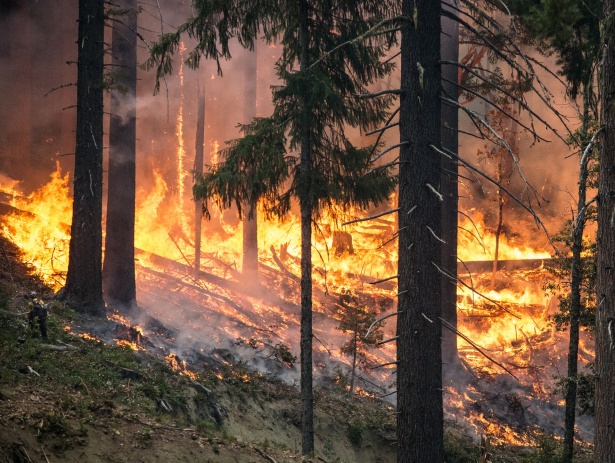WASHINGTON (July 19, 2023)-- Smoke from wildfires in the western half of Canada has once again drifted southward creating unhealthy air quality levels in the U.S., affecting nearly 70 million people across 32 states. This is the second month in a row that some U.S. cities and states have issued air quality alerts as Canada is experiencing its worst fire season on record. Scientists say that such wildfires have been increasing in size and intensity as a result of climate change.
Experts at GW are available to offer insight, analysis and commentary related to the wildfires in Canada, including the public health impact of wildfire smoke and its acceleration from climate change. To schedule an interview with an expert, please contact the GW Media Relations Team at gwmedia gwu [dot] edu (gwmedia[at]gwu[dot]edu).
gwu [dot] edu (gwmedia[at]gwu[dot]edu).
Susan Anenberg, is Director of the GW Climate & Health Institute, and professor of environmental and occupational health. Anenberg’s research focuses on the health implications of air pollution, including smoke from wildfires and climate change. Anenberg can discuss the benefits of staying indoors when air quality is poor and the risk of inhaling pollutants from smoke.
Katelyn O'Dell is an atmospheric scientist and a postdoctoral research scientist at GW who studies air pollution exposure and its health impacts. She can discuss the public health concerns of wildfire smoke exposure. O’Dell’s graduate work has focused on quantifying exposure to wildfire smoke and identifying health-relevant components in smoke. She can discuss the health issues raised by inhaling smoke-filled air, including asthma and respiratory problems.
Neelu Tummala is a clinical assistant professor of surgery and is Co-Director of the Climate Health Institute with a special interest in the effects of climate change on population health. She is available to discuss the public health impacts of climate change.


